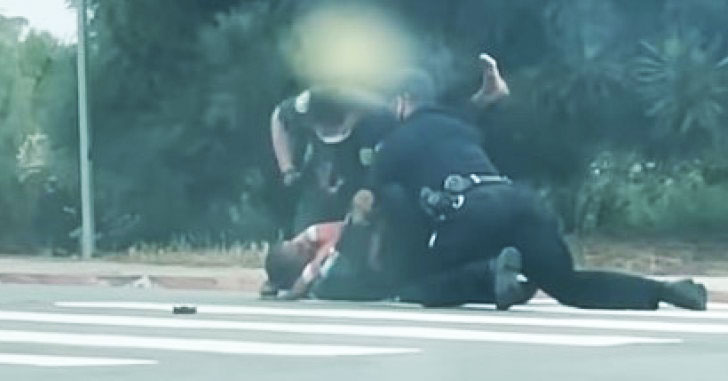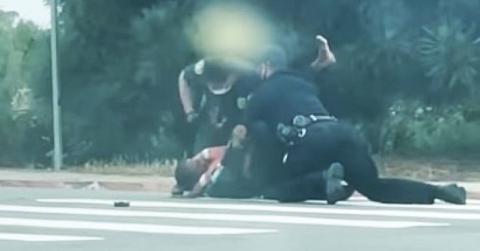
When you have to go, you have to go. The call of nature comes to all animals, even humans, and sometimes at the most inopportune moment.
For those of us with dogs, we know a healthy walk around the block or to the park will most certainly include a few tinkles on trees, in yards, and the occasional fire hydrant.
And more than a few of us -whether we admit it or not- have pulled over on the side of the road during a long drive when the next gas station or rest area was further away than our bladders could handle.
Having a home with functioning bathrooms may not seem like a luxury, but to those living on the streets, finding restroom facilities to use is a daily struggle for their health and their dignity.
Public restrooms at parks and government buildings are not always open and accessible to unhoused individuals, and more often than not, restrooms are purposely locked or made available only to paying customers at restaurants and stores to discourage those on the streets from using them at all.
All this makes what happened to Jesse Evans even more troubling than most instances of excess force by police.
Around 9am on May 12th, Jesse Evans was walking down La Jolla Village Drive near UCSD, not far from where he had spent the night.
Unbeknownst to him, someone had called 911 to report a suspicious person that looked homeless. Although not a crime to look or be homeless, police responded to the call and confronted Evans.
At the moment the two San Diego Police Officers located Evans, he was facing into tall trees along the roadside preparing to relieve himself, although he hadn’t actually done so.
He stopped when the officers confronted him and he walked away without incident, although he did repeatedly yell at the cops to leave him alone.
But that’s when the police officers decided to catch up to Evans and thus began a life-altering event.
“It’s up to you, I’m down for whatever!” one of the offices responded when his partner asked if they should engage Evans.
The two officers tried to stop Evans, again without any proof he had committed any crime beside positioning himself for one of life’s necessary -but not very glamorous- acts: Going to the bathroom.
Just like the other 7.6 billion people on Earth, Jesse Evans had to pee. Unfortunately for him, he was nowhere near a bathroom and just simply could not hold it any longer.
In an attempt to execute his act of human necessity in the most discrete way possible, Evans had leaned into tall trees to both hide his act from the public and also maintain his own decency.
But alas, it was too much to ask from residents of La Jolla and San Diego Police to just let him relieve himself and go on with his day.
The two police officers tried to detain Evans, with one of them holding Evans’s arms as he began to struggle.
Just then, a driver stopped at the traffic light near the confrontation began filming the incident on her cell phone.
The two officers struggled with Evans, yelling to him to “stop resisting” but Evans continued to react to being accosted for no reason.
The second officer then tackled Evans to the ground and began punching Evans in the face. The other officer laid on his body and punched his legs and body. The scene was so shocking that the woman filming the incident instinctively yelled out, “Stop!”

Two additional SDPD officers arrived on scene and joined in the melee. They cuffed Evans and eventually put him in a patrol car and hauled him off to the police station.
Police first reported that their officers responded to a call of a man urinating in public, but later changed their story when the police dispatch calls were released and did not included any such claims.
In fact, the police radio calls to the officers described Evans as “5150”, police jargon for a person with mental issues, but in this case, officers did not seem to respond properly to such a call.
5150 actually refers to Section 5150 of California’s Welfare and Institutions Code that allows a qualified officer or medical clinician to involuntarily retain a person deemed to have a mental disorder that makes him or her a danger to himself or herself, and/or others and/or gravely disabled.
No one made a clinical diagnosis to establish that Evans met the criteria of Section 5150, they just made an assumption that he was crazy, but police didn’t respond accordingly.
If this was the call that SDPD officers received, then why did they act with such aggressive behavior toward someone they believed was experiencing mental health issues?
Jesse Evans was alone, clearly not a danger to others, and seemingly within his own mental capacity. He was simply answering nature’s call to relieve himself.
Maybe had Jesse Evans been in downtown San Diego, the East Village, Barrio Logan, or other communities more used to dealing with unhoused individuals he would have been left alone.
But he was in La Jolla, one of the richest areas of the City with one of the lowest number of unhoused. Clearly one of their residents called 911 to report someone that didn’t fit in and thought it rose to such a level of a public disturbance that they felt entitled to call the police.
Jesse Evans’ only crime seems to have been that he was homeless among some of the most expensive homes in San Diego. There is no evidence he urinated in public, and even that, is not specifically against the law.
California has no law against urinating in public, but most who are cited are charged under Penal Code 372, a public nuisance; a catch-all violation that includes acts like repeatedly letting your dog bark all night long, constantly throwing loud parties at home, and letting your home become rundown with trash and rodents that affect your neighbors.
A one-time incident of urinating is not a public nuisance nor was it indecent exposure.
After the bystander video made its way around social media, SDPD released segments of their officer worn cameras, but not all of the videos.
We can now see for ourselves that Jesse Evans posed no danger to the community and police had no evidence he committed any crime.
Evans was clearly upset he was being harassed and detained by police officers because he knew he hadn’t committed any offense that warranted an arrest.
San Diego Police officers escalated a nothing-burger into a situation that led to a scuffle. Evans was engaged and forced into a situation where he either simply submitted to an unjustified detainment or he would certainly face some sort of criminal charges.
District Attorney Summer Stephan announced this week that her office would not charge Evans with any crimes related to the incident, but is that really a just outcome?
Evans was wrongfully and unjustifiably detained and then beaten by two officers who escalated the situation themselves. Who is really to blame?
The case of Jesse Evans is only a symptom of the myriad problems faced by unhoused individuals living among us, mostly ignored until someone complains.
Our region with high housing costs and perfect weather only exasperates homelessness. We must deal with the root causes and provide wraparound services to assist our those in need to successfully transition to long-term housing.
Calling the police to “deal” with our unhoused population is the wrong first step, and police overreacting and simply sweeping them away to somewhere they can’t be seen doesn’t solve anything either.
Jesse Evans helped open our eyes to the daily struggles of those unhoused living among us, so let’s not turn a blind eye now to their plight. Where to sleep safely, access to bathrooms, medical treatment, and adequate food are just a few of the daily life-and-death issues faced by thousands of individuals in San Diego.
We can all be part of the solution to properly care for those less fortunate, many of whom may be very close to reestablishing stable lives. Sometimes they just need a little help to get their lives back on track.
Dismissing them as 5150 or dangerous criminals only perpetuates the stereotypes that have kept us from dealing with homelessness in honest and direct ways.
San Diego can be a model for criminal and social justice reform that includes comprehensive homelessness programs to treat people like they deserve to be treated; like neighbors.
America’s Finest City isn’t fine enough when we leave so many of our neighbors behind. Let’s be better than fine. Let’s help Jesse and all of our neighbors live better lives. Let’s be America’s Greatest City.
